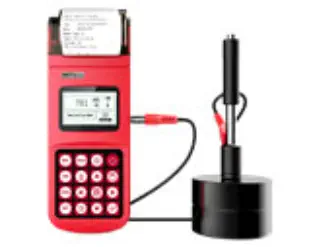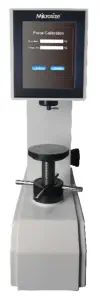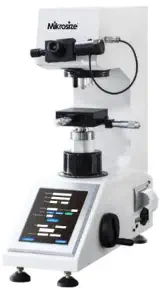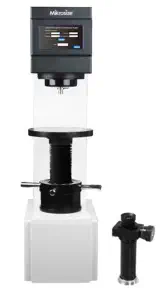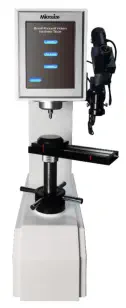Midland Metrology Limited

Rockwell
Rockwell hardness testing is a general method for measuring the hardness of metallic and polymer materials. Rockwell hardness testing is an indentation testing method. The indenter is either a conical diamond (brale) or a hard steel ball. Different indenter ball diameters from 1/16 to 1/2 inch are used depending on the test scale.Macro-Vickers
Macro Vickers is mostly used for small parts, finished components and case depth work. The Vickers method is based on an optical measurement system. A square base pyramid shaped diamond is used for testing in the Vickers scale. Typically loads are very light, ranging from 5kg to 50kg.Micro-Vickers
Micro Vickers is mostly used for small parts, thin sections, or case depth work. The Vickers method is based on an optical measurement system. A square base pyramid shaped diamond is used for testing in the Vickers scale. Typically loads are very light, ranging 10 grams to 1000 grams.Hardness Testers
We offer a wide range of hardness testers for a variety of applications. These machines can be supplied new or reconditioned. We cover the complete range including Rockwell, Brinell, Vickers and Micro-Vickers and Portable Hardness Testers. All machines come complete with a warranty and calibration is available on-siteBrinell
The Brinell hardness test method as used to determine Brinell hardness, is defined in ASTM E10. Most commonly it is used to test materials that have a structure that is too coarse or that have a surface that is too rough to be tested using another test method, e.g., castings and forgings. Brinell testing often use a very high test load (3000kgf) and a 10mm wide indenter so that the resulting indentation averages out most surface and sub-surface inconsistencies.Hardness Tester Product Range
We supply all major types of hardness testers - Rockwell, Vickers, Brinell and Universal which combine all the previous three types of hardness testers, together with portable devices so that testing can be performed more conveniently. Our commitment to you does not end once you have bought a hardness tester from us. We can offer on-site service and calibration contracts to ensure your machine is maintained in first class condition. Please contact us for further details..Universal Testers
As the name suggests, it is a machine that offers the measurement of Rockwell, Vickers and Brinell Scales. Due to its versatility it is equipped with different types of indenter and measuring methods of the indents created.
Peace of mind…
Hardness Testers supplied by Midland Metrology are covered by a 12 month warranty for complete peace of mind.Portable Testers
The Leeb rebound hardness test method was developed in 1975 by Leeb & Brandestini at Proceq SA to provide a portable test for metals. It was developed as an alternative to the unwieldy and sometimes intricate traditional hardness tester. Traditional hardness measurements, e.g., those of Rockwell, Vickers, and Brinell are stationary, requiring fixed workstations in segregated testing areas or laboratories. The portability of Leeb testers can sometimes help to achieve higher testing rates without destruction of samples, which in turn simplifies processes and reduces cost.
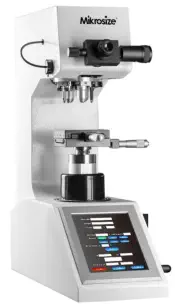
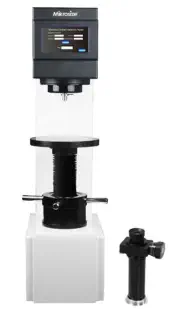
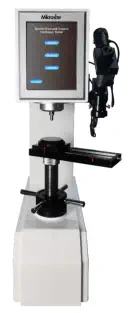
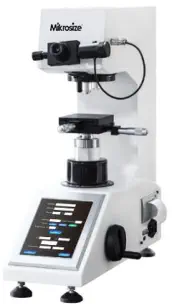
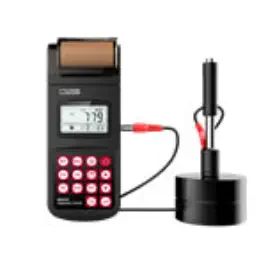

Midland Metrology Ltd | Unit G3 Little Heath Ind.Est.
Coventry | England | CV6 7ND | Tel: +44 (0) 2476 638280
Email: sales@midland-metrology.co.uk
Rockwell
Rockwell hardness testing is a general method for measuring the hardness of metallic and polymer materials. Rockwell hardness testing is an indentation testing method. The indenter is either a conical diamond (brale) or a hard steel ball. Different indenter ball diameters from 1/16 to 1/2 inch are used depending on the test scale.Macro-Vickers
Macro Vickers is mostly used for small parts, finished components and case depth work. The Vickers method is based on an optical measurement system. A square base pyramid shaped diamond is used for testing in the Vickers scale. Typically loads are very light, ranging from 5kg to 50kg.Micro-Vickers
Micro Vickers is mostly used for small parts, thin sections, or case depth work. The Vickers method is based on an optical measurement system. A square base pyramid shaped diamond is used for testing in the Vickers scale. Typically loads are very light, ranging 10 grams to 1000 grams.Hardness Testers
We offer a wide range of hardness testers for a variety of applications. These machines can be supplied new or reconditioned. We cover the complete range including Rockwell, Brinell, Vickers and Micro-Vickers and Portable Hardness Testers. All machines come complete with a warranty and calibration is available on- siteBrinell
The Brinell hardness test method as used to determine Brinell hardness, is defined in ASTM E10. Most commonly it is used to test materials that have a structure that is too coarse or that have a surface that is too rough to be tested using another test method, e.g., castings and forgings. Brinell testing often use a very high test load (3000kgf) and a 10mm wide indenter so that the resulting indentation averages out most surface and sub-surface inconsistencies.Hardness Tester Product Range
We supply all major types of hardness testers - Rockwell, Vickers, Brinell and Universal which combine all the previous three types of hardness testers, together with portable devices so that testing can be performed more conveniently. Our commitment to you does not end once you have bought a hardness tester from us. We can offer on-site service and calibration contracts to ensure your machine is maintained in first class condition. Please contact us for further details..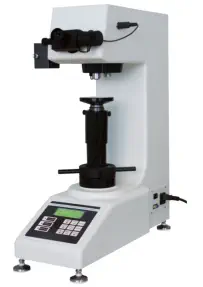
Midland Metrology LimitedMidland Metrologyidla4 (0) 2476 638280
Universal Testers
As the name suggests, it is a machine that offers the measurement of Rockwell, Vickers and Brinell Scales. Due to its versatility it is equipped with different types of indenter and measuring methods of the indents created.Portable Testers
The Leeb rebound hardness test method was developed in 1975 by Leeb and Brandestini at Proceq SA to provide a portable hardness test for metals. It was developed as an alternative to the unwieldy and sometimes intricate traditional hardness measuring equipment. Traditional hardness measurements, e.g., those of Rockwell, Vickers, and Brinell are stationary, requiring fixed workstations in segregated testing areas or laboratories. The portability of Leeb testers can sometimes help to achieve higher testing rates without destruction of samples, which in turn simplifies processes and reduces cost.




